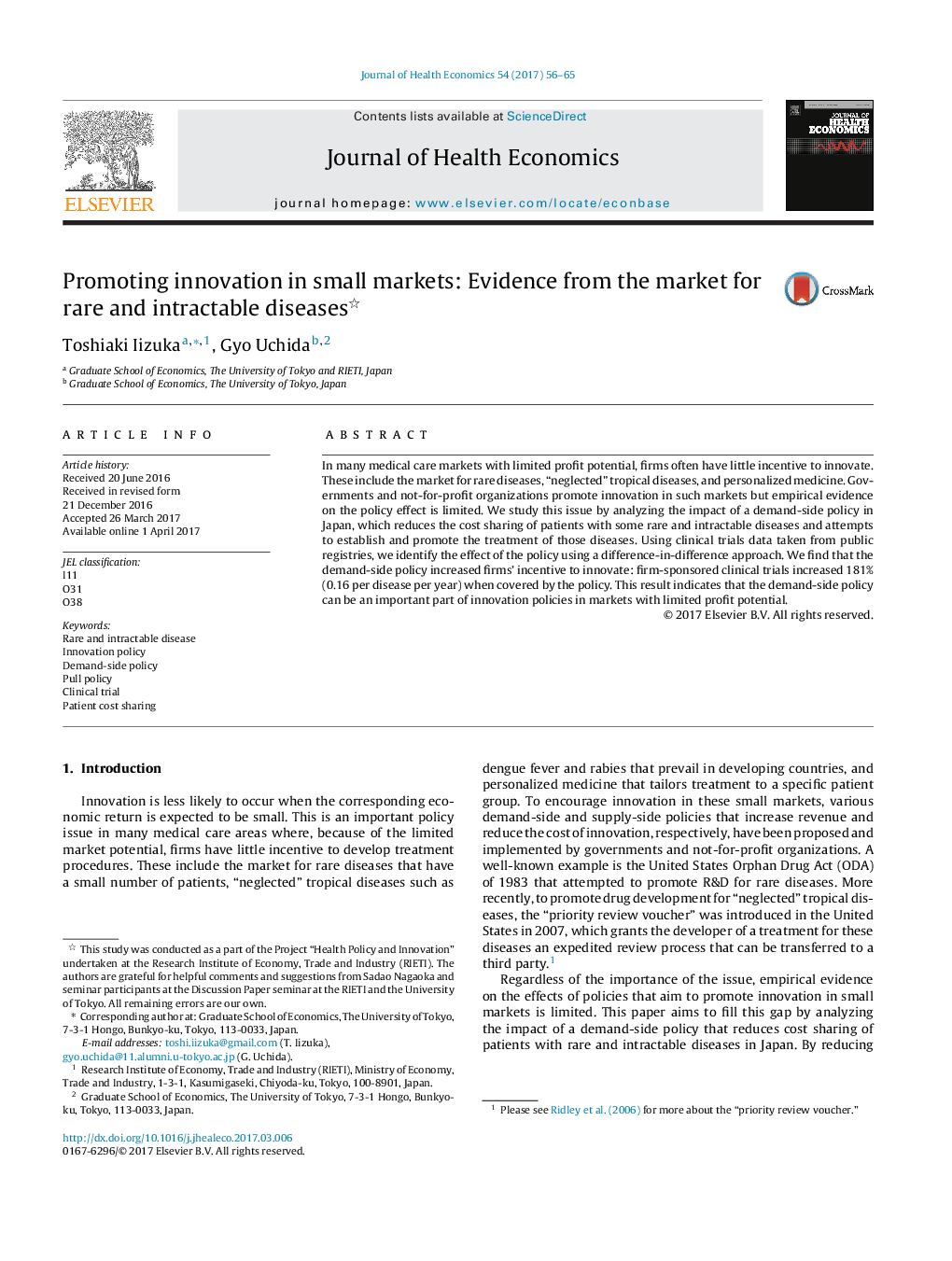| Article ID | Journal | Published Year | Pages | File Type |
|---|---|---|---|---|
| 5100758 | Journal of Health Economics | 2017 | 10 Pages |
Abstract
In many medical care markets with limited profit potential, firms often have little incentive to innovate. These include the market for rare diseases, “neglected” tropical diseases, and personalized medicine. Governments and not-for-profit organizations promote innovation in such markets but empirical evidence on the policy effect is limited. We study this issue by analyzing the impact of a demand-side policy in Japan, which reduces the cost sharing of patients with some rare and intractable diseases and attempts to establish and promote the treatment of those diseases. Using clinical trials data taken from public registries, we identify the effect of the policy using a difference-in-difference approach. We find that the demand-side policy increased firms' incentive to innovate: firm-sponsored clinical trials increased 181% (0.16 per disease per year) when covered by the policy. This result indicates that the demand-side policy can be an important part of innovation policies in markets with limited profit potential.
Related Topics
Health Sciences
Medicine and Dentistry
Public Health and Health Policy
Authors
Toshiaki Iizuka, Gyo Uchida,
